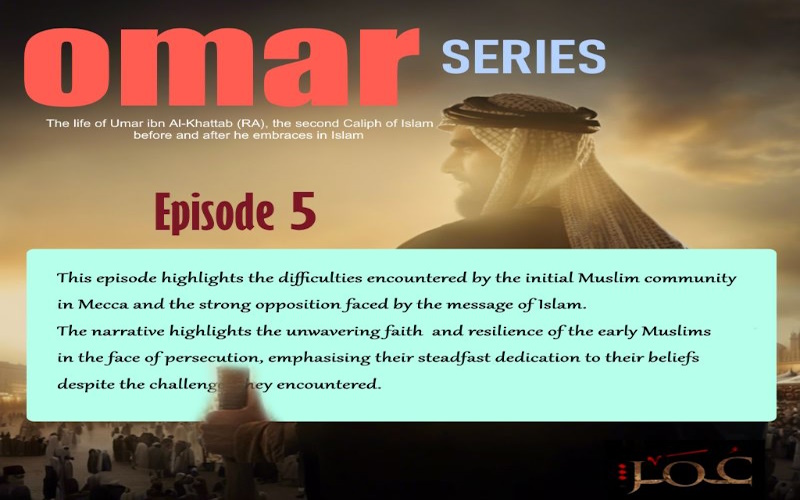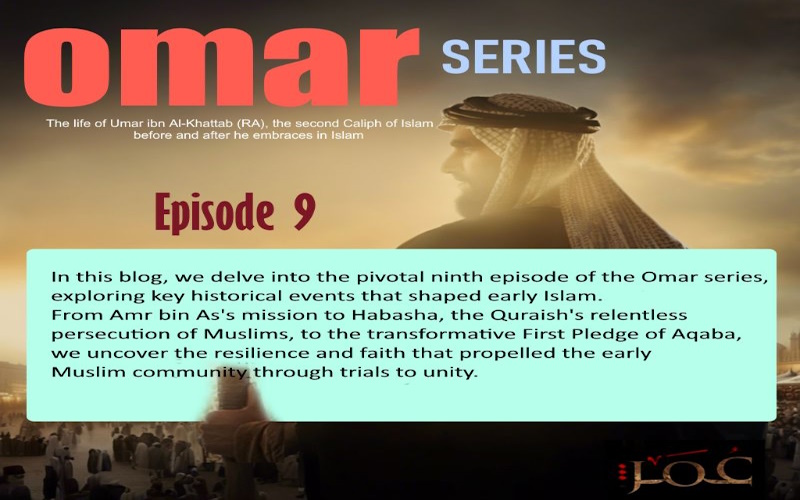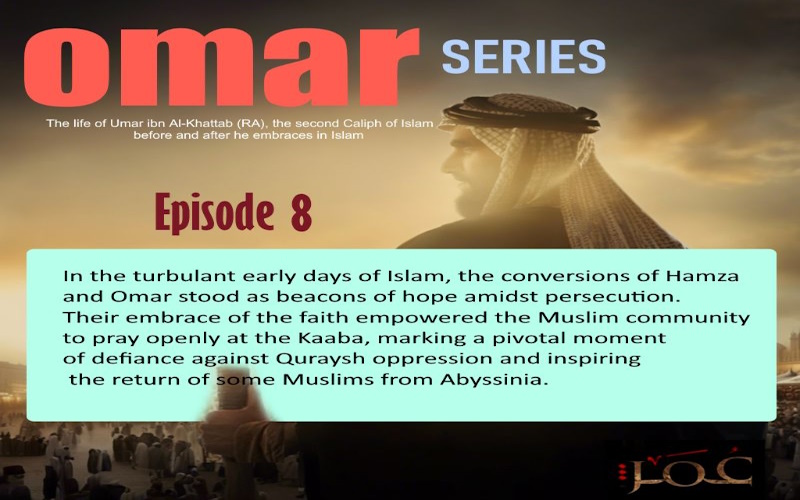This blog will detail the crucial events in the fifth episode of the Omar series. The story focuses on the challenges the emerging Muslim community faces in Mecca. The episode dives into the difficulties encountered by the Prophet Muhammad and the treatment of newly converted Muslims. It also emphasises the impact of the Islamic message on individuals from different walks of life. It also focuses on how Islam changed society and faith.
Introduction:
This episode of the Omar series provides a fascinating insight into the early stages of Islam and depicts the challenges that Prophet Muhammad and his followers faced in Mecca. The detailed depictions of the early Muslims, the resistance they encountered, the mistreatment, and the steadfast devotion highlight the societal and religious transformations brought about by the growth of Islam despite enormous resistance.
Umar’s Strategic Approach:
The episode opens with Abu Jahl urging for swift action against Muhammad, prompting Umar to advise against approaching Banu Hashim directly and recommending a more strategic approach.
Umar’s practical position highlights the complexity of tribal relationships and the possible consequences of directly confronting a formidable tribe such as Banu Hashem.
He urged all tribes to look inward, deal with their deserters, and ensure their return to old beliefs.
Utbah’s meeting with Mohammad:
The crucial event in early Islamic history was the interaction between Utbah and Muhammad. Utbah attempted to persuade Muhammad to give up his message by offering him power, wealth, and women.
After this failed attempt at persuasion, Utbah’s views changed considerably. He came back with a profound influence from what Mohammad said to him.
He conveyed to the people of Quraish his conviction that Muhammad’s teaching was not rooted in magic or sorcery but instead held the potential to bring about profound transformations within the Arab community.
He advised the tribal leaders to leave Mohammad alone; he stated their problem would be resolved if fellow Arabs engaged with Muhammad and terminated him. However, if Muhammad were to succeed, it would also mean victory for them.
This episode shows the influential and transformative nature of the message of Islam, even among individuals who opposed it owing to their tribal affiliations.
Conversion of notables:
The episode also depicts the conversions of notable figures such as Salama Ibn Hisham (brother of Abu Jahl) and Ayyash Ibn Abi Rabiya (his half-brother), showcasing the extensive influence of Islam and the difficulties faced by those who embraced the new religion in the face of strong opposition. Moreover, the distressing portrayals of torture suffered by early Muslims, such as Bilal and the family of Yasir, serve as evidence of great trials and tribulations in the early Muslim community in Mecca.
Reflections on Racist and tribe Prejudices:
Wahshi’s astonishment at Bilal’s ability to withstand torture for a religion that was linked to a particular racial group underlines the deeply ingrained tribe and racial biases prevalent during that era.
Bilal, a once enslaved individual, demonstrated resilience in his commitment to Islam, and the subsequent enhancement of his position within the Muslim community further illustrates the transformational nature of the Islamic faith.
Its objective was to dismantle the obstacles of tribal and racial bias and establish a society founded on religious devotion and moral integrity rather than ancestry or tribal lineage.
Omar’s strong opposition:
Omar’s strong opposition and resorting to physical force to halt the spread of Islam within his tribe demonstrate the turbulent and divisive impact of the sociological and theological changes brought about by the emergence of Islam.
The early Muslims faced significant resistance and hatred as they tried to practice their faith, which is highlighted by their sacrifices.
Umar’s opposition to the propagation of Islam among his clan exemplifies the difficulties encountered by the early Muslim community in attaining approval and acknowledgement for their faith in a society that was reluctant to embrace change.
A Concise Overview:
This episode highlights the difficulties encountered by the initial Muslim community in Mecca and the strong opposition faced by the message of Islam. The narrative highlights the unwavering faith and resilience of the early Muslims in the face of persecution, emphasising their steadfast dedication to their beliefs despite the challenges they encountered.






